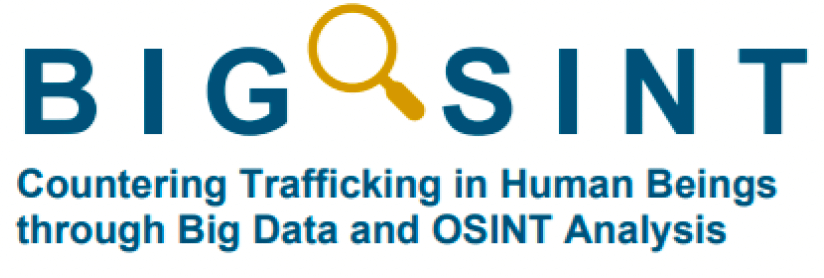BIGOSINT will develop and pilot advanced, intelligence-led tools to enhance investigations into trafficking in human beings (THB), directly targeting the diverse roles that the internet plays in THB. As an extension of the ISFP project UNCHAINED, BIGOSINT will expand the counter-THB tools with technologies to:
1) enhance LEA access to, and monitoring of, open and closed environments online,
2) boost investigations into and understanding of cryptocurrency transactions.
The tools will be integrated into a FAST platform, developed in UNCHAINED and adapted for the specific purposes of the BIGOSINT project, allowing smooth and secure data-sharing among LEAs and, using a different access-level model, between them and private entities involved in counter-THB operations. The BIGOSINT investigative techniques will be piloted for a 20 week period, supported by innovative LEA training on implementation of the tools, the dynamics of internet-facilitated THB, and models for cross-border and inter-agency cooperation. National inter-agency teams will be established in 3 Member States and a ‘Communication Toolkit’ will be deployed to support the protection of potential victims, and vulnerable groups in particular.
This project is funded by the European Union.
The content of this document represents the views of the author(s) only and is solely his/her responsibility. The European Commission does not accept any responsibility for use that may be made of the information it contains.


In the BIGOSINT project the IPoS, together with the partners, identifies and evaluates the technological and non-technological tools that are available. The consortium wants to deepen the understanding of investagtions on the THB cycle in the caber environment. There will be a case study analysis, a database & procedural mapping as well as a technological roadmap design. Further more the IPoS conducts a deep-web analysis via Tor and Onion servers and will also with the partners integrate open-source data solutions and the existing FAST platform for domestic and international counter-THB operations. The consortium will create a THB handbook in which the content will outline software and procedural outcomes. On this basis the IPoS and partners will deliver sustained service trainings for the target audience. In this trainings interagency teams will be established and trained with live prototype sessions and live stress testing of the FAST platform under real world conditions. For this purpose the IPoS will define pilot testing methodologies and training content as well as virtual reality (VR) environments and scenarios and material packages.
Assess the state of the art in counter-online THB instruments
Enhance relevant LEAs access to, and monitoring of, open and closed environments online
Interrupt the financial flow supporting online THB
Strengthen cross-border and inter-agency cooperation
Test new Tools, protocols and joint investigative approaches to counter online THB
Reduce the vulnerability of specific groups





To be always updated about IPoS.
Institute of Police and Security Research – IPoS
Doventorscontrescarpe 172 C
28195 Bremen
Germany